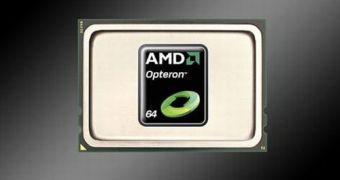Though Intel and Advanced Micro Devices have been putting up the image that they dictate when and how microprocessors evolve, it turns out that this is not exactly the case.
Certainly, the two microprocessor designers come up with the technology, the manufacturing procedures and the final designs, but they aren't as in control as some think.
According to recent revelations, the two have been manufacturing custom chips for years, something that Facebook and Google reportedly call “specific silicon.”
They are only those who openly admitted to this though. The list of corporations who run massive cloud datacenters and need customized equipment, or make their own, is longer.
It used to be only HP, IBM and Dell who guided everyone else, but now there is the matter of Google too, and Facebook, Apple, Microsoft, etc.
To meet their needs, AMD and Intel sometimes tweak clock speeds while other times they fundamentally change their chip construction.
"There are situations where the company has turned off certain parts of a processor at the request of customers, or even added [new] instructions," said John Williams, vice president of server marketing and business development at AMD.
"We want to give [our biggest customers] a way of differentiating their machines," said Diane Bryant, corporate vice president and general manager of the datacenter and connected systems group (DCSG) at Intel.
All things considered, it makes sense that Intel and AMD do this, since large server buyers need to cut power consumption, improve performance, add specific functionality and lower the TCO (total cost of ownership). Still, it's intriguing that, in just three years, HP, IBM and Dell lost their status as “guides.”
The only possible complaint about this is that regular customers do not have access to the special chips, but the smaller companies probably wouldn't afford the costs involved with making such specific orders, even if they do suffer the very same challenges. Fortunately, it is implied that the changes eventually reach mainstream designs.

 14 DAY TRIAL //
14 DAY TRIAL //